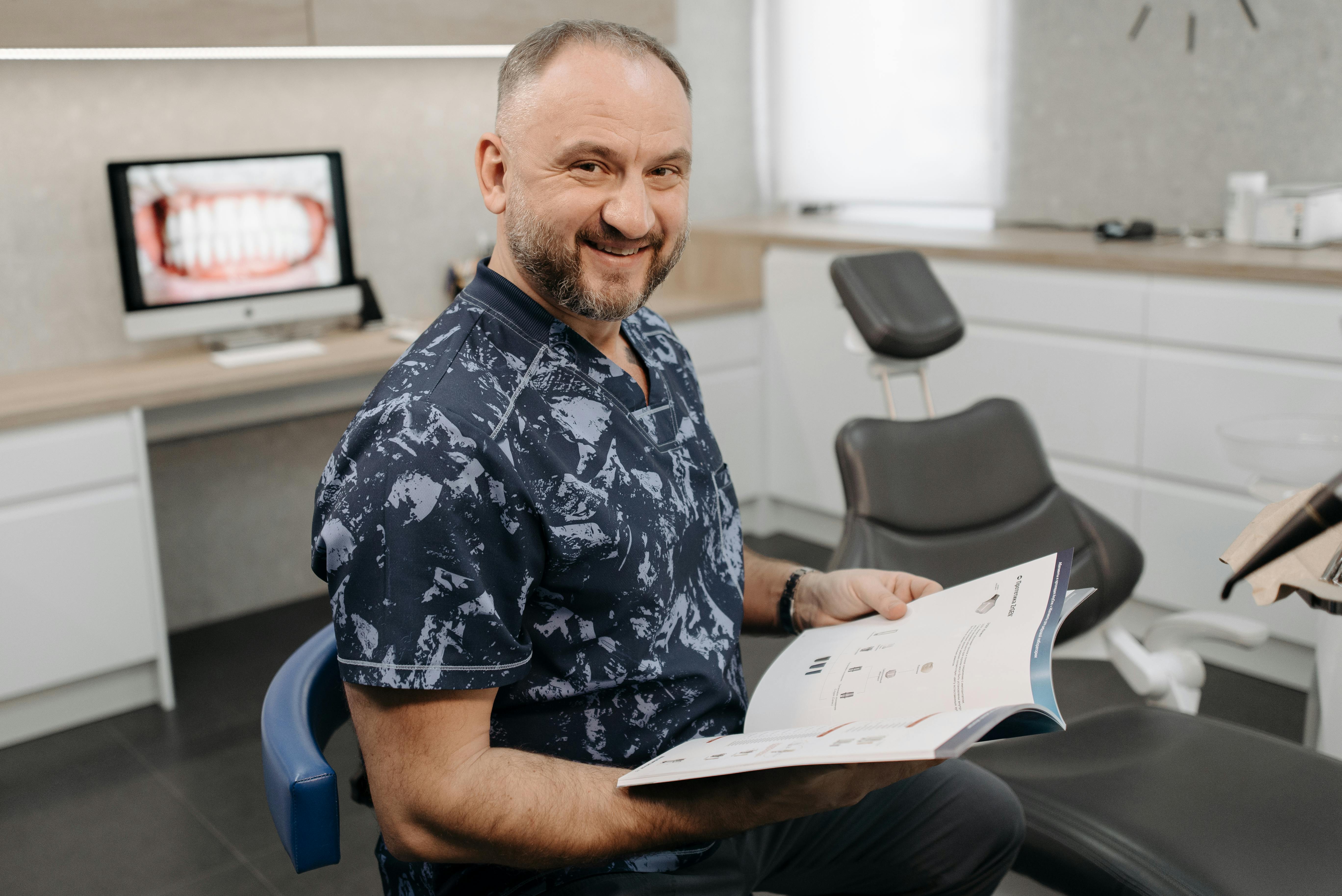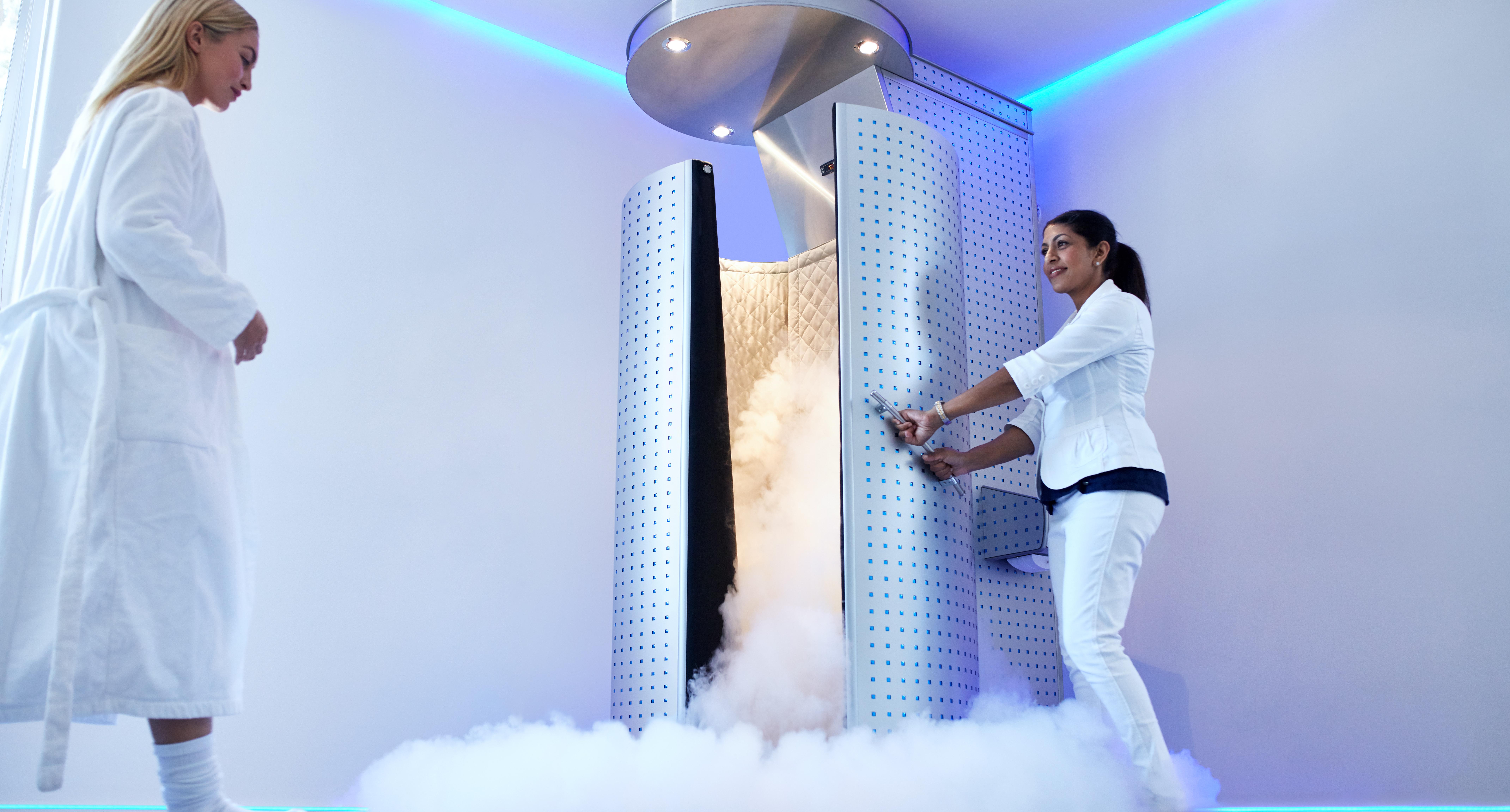Beyond the MD: Alternative Healthcare Degrees with the Best Job Prospects
For many people drawn to healthcare, the traditional path to an MD can feel out of reach—or simply not the right fit. The truth is, the world of healthcare thrives because of a vibrant mix of professionals with diverse backgrounds and expertise. If you’re searching for a way to make a positive impact and enjoy job stability, but an MD isn’t your calling, take heart: countless health careers offer meaningful work, solid growth, and ways to contribute to wellness on your own terms. This guide explores four standout alternative healthcare degrees with the best job prospects, along with seven essential career pathways, skills, and applications to help you shape a purposeful, rewarding future. Whether you’re a career changer, recent grad, or someone looking to build a more sustainable work-life balance, there’s never been a better time to become part of the next wave of healthcare innovators. Let’s explore which paths are opening doors—and hearts—across the field.
1. Telemedicine and Health Technology Degrees

Technology has revolutionized patient care, and telemedicine is leading the way. Degrees focused on health technology—such as a Bachelor’s in Health Informatics, Health Information Management, or Telehealth Operations—prepare students to streamline remote care and tackle the challenges of digital healthcare. In these programs, you’ll learn to manage telehealth platforms, navigate digital records, and support innovative patient monitoring tools. The field has exploded since the pandemic, and job prospects reflect that growth. Positions range from telehealth nurse and virtual care coordinator to digital health specialist. Most roles require a bachelor’s or associate degree, with many employers providing hands-on training for newer tools and platforms. Flexibility is a major perk here: remote work is becoming the norm, and licensing or certification requirements may differ by state or employer. As AI and remote care keep rising, the need for professionals with the right blend of technical and healthcare skills will only increase. If you enjoy technology, problem solving, and helping others, this degree path opens doors to a career that is both future-proof and personally meaningful.
2. Mental Health and Psychology Specialties

A Bachelor’s degree in Psychology is a gateway to an array of mental health roles—most of which are in more demand than ever. Psychology is consistently ranked among the most popular undergraduate majors, and its versatility shows. Graduates can work as psychiatric technicians, rehabilitation aides, behavioral health advocates, or career counselors, often with further certifications. Many roles provide a vital bridge between clinical providers and clients, especially as mental health takes center stage in holistic care. Demand has surged for mental health techs and support staff across hospitals, schools, and community wellness organizations. Entry roles usually require a bachelor’s degree, while further study can unlock counseling, therapy, or specialist paths. This degree isn’t just for future therapists; it serves anyone interested in social work, healthcare communication, or program development, offering stable employment and daily purpose. With mental wellness emerging as a priority at every level of society, a psychology degree delivers real skills and meaningful opportunities to support individuals and communities.
3. Healthcare Administration and Management Programs

Healthcare’s rapid growth depends on skilled professionals who can manage both care delivery and business operations. Degrees in Healthcare Administration, Health Services Management, or Hospital Operations are designed for those who want to shape policy, improve systems, and keep healthcare organizations running smoothly. These programs teach budgeting, human resources, healthcare law, and leadership—skills at the heart of modern medicine. Careers include hospital administrator, operations manager, patient services coordinator, or case manager. The work is varied, often people-focused, and crucial to maintaining efficient, patient-centered care environments. Programs vary from associate and bachelor’s degrees to graduate tracks (like MHA for advanced roles). With major healthcare systems transforming to meet new demands, these administrative and management roles offer not just job stability but the room to drive real change. This is a strong choice for detail-oriented individuals who thrive on organization, teamwork, and big-picture thinking.
4. Medical Writing and Communications Careers

For those with a passion for both science and storytelling, medical writing is a robust field that blends expertise with communication. Degrees in health sciences, English, or journalism (sometimes combined with specialized certifications) can launch a career in regulatory writing, patient education, content development, or technical documentation. There’s high demand for people who can craft accurate, clear, and compassionate health information for patients, healthcare workers, or the pharmaceutical industry. Work settings include hospitals, research organizations, publishing houses, and nonprofits. As healthcare continues to expand, the need for well-versed communicators grows too. Medical writers often work cross-functionally—sometimes remotely—and play a vital role in translating complex medical topics for diverse audiences. If you excel at making scientific concepts accessible and are motivated by education and advocacy, medical communications offers creative fulfillment and job security all in one package.
5. Rehabilitation Specialist Roles

Many psychology and allied health graduates find rewarding work as rehabilitation specialists, guiding patients through their recovery after injury, illness, or surgery. This role centers around teamwork—collaborating with physicians, occupational therapists, and families to help individuals regain skills and independence. The job is people-focused, practical, and suited for those who thrive on tangible daily progress. Rehabilitation specialists work in hospitals, outpatient clinics, skilled nursing facilities, and patient homes, adapting therapy plans and providing hands-on support. These positions are especially vital as populations age and the prevalence of chronic conditions grows. For those who combine empathy with a desire for active, engaging work, rehabilitation offers a path where the difference you make is visible and deeply appreciated by patients and loved ones alike.
6. Digital Health Coordinator Opportunities

The digital side of healthcare keeps expanding, and digital health coordinators are at the organizational heart of this change. These professionals oversee telemedicine platforms, manage patient information technology, and ensure that virtual care runs smoothly. Strong backgrounds in health technology or informatics are helpful, but certifications and on-the-job training can also pave the way. The need for digital health coordination is growing in clinics, hospitals, and even private practices, as the industry invests in telehealth infrastructure. This is a fantastic fit for problem solvers who want both patient impact and tech-forward careers. If you’re energized by innovation and detail, this behind-the-scenes position can put you at the center of a healthcare revolution—while delivering job security and day-to-day variety.
7. Data Literacy: A Must-Have Skill Across Healthcare

No matter your degree, being comfortable with data is increasingly essential in healthcare’s evolving landscape. From telemedicine to hospital administration, professionals who understand patient data, privacy regulations, and analytics find themselves in high demand. Data literacy isn’t just about spreadsheets—it’s about recognizing trends, translating numbers into patient care strategies, and supporting decision-making at all levels. Many universities and employers now offer training programs and workshops in data analytics specifically for healthcare settings. Developing this skill, whether in a degree program or on the job, provides a major employment edge. For those not tech-savvy, starting with basic online courses can build the confidence needed to grow. In a world where information drives outcomes, investing in data skills is one of the most sustainable steps toward a long, flexible healthcare career.
8. Healthcare Case Manager Careers

Healthcare case managers are critical navigators in today’s complex care environments, ensuring that patients receive attention tailored to their needs. Typically, a background in administration, psychology, or social work builds the foundation for this versatile role. Case managers coordinate care plans, connect patients with resources, and advocate for timely services, often supporting vulnerable populations. This job requires both organizational acumen and a compassion-driven mindset—qualities that elevate healthcare delivery across settings. As care models shift toward holistic wellness and prevention, demand for skilled case managers only grows. It’s a rewarding path for those who value advocacy and wish to help others access the support they deserve.
9. Wellness Program Specialist Positions

With mental health and prevention in sharper focus, wellness program specialists are now indispensable to many healthcare and corporate environments. Professionals with backgrounds in psychology, public health, or health administration design and implement initiatives that promote healthy habits, reduce stress, and foster well-being on a community or corporate scale. The role offers variety: overseeing employee wellness programs, collaborating with nutritionists or fitness experts, and planning programs for all ages. As more organizations invest in preventive health to improve outcomes and cut costs, wellness specialists enjoy expanding opportunities and the chance to create real, measurable impact. This is a field that rewards creativity, communication, and a genuine interest in empowering others.
10. Remote Patient Monitoring: Tech-Driven Care in Action

Healthcare technology degrees are unlocking new ways to care for patients outside hospital walls—especially through remote patient monitoring (RPM). With RPM, professionals track health data in real time, enabling earlier intervention and continuous support for those managing chronic conditions. This area is vital for older adults, individuals recovering from surgery, or patients in rural regions. Positions exist in hospitals, home health agencies, and device companies, requiring both technical know-how and the ability to build trust from a distance. Many degree programs and employers include RPM components in their curricula and training. As wearables and telehealth tools become everyday essentials, this is an accessible avenue for making a direct difference—one digital check-in at a time.
11. Healthcare Communications Specialist Pathways

Communication has never been more important in healthcare. Whether writing patient education materials, leading public health campaigns, or coordinating crisis communications, specialists with backgrounds in health sciences, psychology, or journalism are in high demand. These roles require clarity, empathy, and the ability to translate technical information into everyday language. The spectrum is broad—public health educator, media liaison, outreach coordinator, or communications lead in a medical organization. As misinformation and health anxiety remain challenges, skilled communicators ensure accuracy and compassion go hand in hand. If you’re passionate about empowering others with knowledge and have strong writing or speaking skills, this invaluable field may be your best fit.
12. Genetic Counselor

For those fascinated by human biology, a career as a Genetic Counselor offers a unique path in patient care. These professionals interpret complex genetic testing results for patients and families, assessing risks for hereditary conditions and offering crucial emotional support. While the precision medicine coordinator focuses on systems, the genetic counselor is the patient-facing expert who translates genomic data into clear, understandable options. A Master’s degree in Genetic Counseling is required, leading to highly rewarding work in hospitals, clinics, or research labs. This is a field of constant discovery that blends compassionate counseling with cutting-edge science.
13. Health Information Security Specialist

With massive patient data breaches becoming common, Health Information Security Specialists are the essential guardians of digital care. This role is a specialized branch of cybersecurity, focused entirely on protecting sensitive electronic health records (EHRs), patient portals, and telemedicine networks from cyber threats. Professionals in this field implement security protocols, manage compliance (like HIPAA), and lead rapid responses to breaches. A background in IT or cybersecurity, often with health informatics training, is key. This career offers extremely high demand, top-tier compensation, and the critical satisfaction of ensuring patient privacy and system integrity.
14. Community Paramedic/MIH Specialist

The emerging role of the Community Paramedic (often part of Mobile Integrated Healthcare or MIH) shifts high-level responders from emergency calls to preventative care. These specialists visit high-risk patients outside the hospital, providing post-discharge check-ins, chronic disease management, and essential community referrals. Their mission is to prevent re-hospitalizations and improve health equity in underserved areas. This career requires advanced paramedic training and a public health focus, and it is revolutionizing how primary care is delivered. It’s a dynamic, hands-on role for those who want to be true agents of change in their local communities.
15. Health Systems Architect/Integrator

As healthcare systems grow more complex, Health Systems Architects ensure that all parts—from the ER to billing—work together seamlessly. This strategic role focuses on Quality Improvement (QI) and efficiency. Architects analyze workflows, identify bottlenecks in patient care or administration, and design better operational models. This requires strong skills in systems engineering, business analysis, or healthcare administration. The work is crucial for reducing waste and improving the patient experience. If you love solving big-picture problems and driving organizational change, this powerful behind-the-scenes role is an ideal fit.
16. Certified Prosthetist/Orthotist (CPO)

The field of Prosthetics and Orthotics blends engineering, anatomy, and patient care into a high-skill, hands-on career. CPOs design, fabricate, and fit custom-made artificial limbs (prostheses) or medical braces (orthoses). This deeply personal work helps patients regain mobility and independence after injuries, surgeries, or congenital conditions. A Master’s degree in Prosthetics and Orthotics is required, followed by a residency. This career is ideal for those who want a technical, creative challenge and the profound satisfaction of using science to directly improve a patient's physical abilities and quality of life.
17. Clinical Research Coordinator (CRC)

The CRC is a vital, non-MD role that stands at the intersection of patient care and medical discovery. Professionals in this role manage the day-to-day operations of clinical trials—the essential process for developing new drugs, vaccines, and treatments. A CRC, often holding a Bachelor's in Biology, Public Health, or Nursing, handles patient recruitment, ensures regulatory compliance (FDA/GCP), collects and manages data, and coordinates with physicians, sponsors, and ethics committees. This career is ideal for detail-oriented, organized individuals passionate about scientific innovation and patient safety. It offers high growth in pharmaceutical companies and academic medical centers, providing a direct hand in shaping the future of medicine without practicing it.
18. Surgical Technologist

For those who want a direct, hands-on, high-stakes role in the operating room (OR) without the years of surgical residency, the Surgical Technologist is an excellent fit. These essential team members—often called "scrub techs"—prepare the sterile field, pass instruments to the surgeon, manage equipment, and ensure the OR runs smoothly and safely. Their knowledge of human anatomy and surgical procedures is critical. A short Associate's degree or postsecondary certificate is the typical entry point. This career is deeply rewarding for those who thrive in fast-paced, high-pressure environments, offering immediate job satisfaction and the profound knowledge that you are a direct contributor to life-changing patient outcomes.
19. Medical Illustrator/Animator

This specialized creative career bridges the gap between medical complexity and visual understanding. Medical Illustrators, who typically hold a Master's degree in medical illustration, use advanced digital tools to create accurate, detailed visual content—from textbook diagrams and surgical training animations to patient education graphics. They work for publishers, pharmaceutical companies, medical device manufacturers, and even trial lawyers, ensuring complex anatomical and biological information is conveyed clearly and ethically. This path perfectly suits an individual with strong artistic talent who is also deeply committed to scientific accuracy and health communication. It's a niche, high-demand field offering creative fulfillment and stability.
20. Phlebotomy Technician

Phlebotomy is often the first step into patient-facing healthcare for those seeking a fast-track, highly stable career. Phlebotomists are responsible for drawing blood for tests, transfusions, donations, or research. They are experts in venipuncture techniques and are trained to handle blood collection with high accuracy and patient comfort. This role is crucial in almost every corner of healthcare, including hospitals, labs, and mobile collection centers. A short certificate program is usually enough to qualify. It's a fantastic choice for those who want a low barrier to entry, enjoy direct, brief patient interactions, and are looking for a dependable, foundational healthcare job with excellent opportunities for upward mobility.
21. Radiation Therapist

A Radiation Therapist is a key member of the oncology team, working directly with patients undergoing cancer treatment. They are responsible for accurately delivering prescribed doses of radiation using high-tech equipment, ensuring both therapeutic effectiveness and patient safety. This career requires an Associate's or Bachelor's degree in Radiation Therapy. The role combines advanced technical skill with a high degree of patient empathy, as therapists often build strong, supportive relationships with patients through their treatment journey. It's a technologically sophisticated career that offers high job stability and the daily reward of directly contributing to a patient's fight against cancer.
22. Perfusionist

Perfusionists are highly specialized life support technicians who operate the heart-lung machine during cardiac surgery or other medical procedures where the patient's own cardiorespiratory function needs to be temporarily replaced. This critical, high-tech role requires a Bachelor's degree, often in biology or a related field, followed by a demanding Master's level program and certification. Perfusionists are essentially responsible for managing the patient's circulation and respiration while the heart is stopped, requiring lightning-fast, critical decision-making. This career offers extremely high compensation, job security, and the profound satisfaction of directly enabling complex, life-saving surgery.
23. Diagnostic Medical Sonographer

Diagnostic Medical Sonographers, often called ultrasound technicians, use specialized equipment to create images of structures inside the human body, such as organs, blood vessels, and soft tissues. This career requires an Associate's degree or a post-secondary certificate and is highly focused on technical skill and precision. Sonographers are crucial diagnostic team members, providing real-time data to physicians on everything from fetal development to cardiac function and identifying tumors. It's an excellent choice for individuals who enjoy technology, possess strong attention to detail, and want a dynamic, hands-on role in direct patient diagnostics.
24. Dietetic Technician, Registered (DTR)

While many people know the role of a Registered Dietitian (RD), the DTR is an essential support role in nutritional healthcare. DTRs typically hold an Associate's degree or technical certificate and work under the supervision of an RD or health professional. They focus on direct patient care, including gathering nutritional histories, counseling patients on standard diet plans, and managing food services in hospitals, schools, and long-term care facilities. This role offers a faster track into the vital field of preventative and chronic disease management, making a daily impact by helping patients implement healthy dietary changes.
25. Biomedical Equipment Technician (BMET)

Biomedical Equipment Technicians are the unseen heroes of modern medicine, responsible for installing, maintaining, and repairing the complex medical devices used in hospitals and clinics—from MRI machines and ventilators to infusion pumps. This technical career typically requires an Associate's degree in biomedical technology or electronics. BMETs ensure patient safety and operational readiness, making sure every piece of technology functions perfectly when a life is on the line. This job is perfect for those who are mechanically inclined, thrive on technical problem-solving, and want to support patient care from a crucial engineering and safety perspective.
26. Occupational Therapy Assistant (OTA)

The Occupational Therapy Assistant works under the direction of an Occupational Therapist (OT) to help patients recover skills needed for daily living and working. Where physical therapists focus on gross movement, OTAs focus on purposeful activities like dressing, cooking, and writing. The role requires an Associate’s degree and is highly hands-on and creative. OTAs implement customized therapy plans, often using adaptive equipment, to help patients—from children with developmental delays to seniors recovering from a stroke—achieve independence. It's a deeply empathetic, action-oriented career with excellent growth in rehabilitation and community health settings.
27. Public Health Toxicologist

In an era of rising environmental concerns, Public Health Toxicologists are critical analysts who study how chemicals, pollutants, and environmental agents impact human health at the population level. They assess risks associated with air and water quality, industrial waste, and consumer products, providing data that directly informs public health warnings and environmental policy. A Master’s degree in Toxicology or Environmental Health Science is generally required. This career is ideal for those who love chemistry and biology and want to protect large communities by translating complex environmental data into clear, preventative action.
28. Clinical Ethicist

With medical advancements creating difficult end-of-life, resource allocation, and consent issues, Clinical Ethicists serve as crucial, non-medical advisors. They facilitate discussions among patients, families, and medical teams when moral conflicts arise (e.g., questions about life support or treatment refusal). They also educate staff and help develop hospital policies on complex ethical issues. This role requires a strong background in philosophy, theology, or law, often culminating in a Master's or Ph.D. in Bioethics. It's a deeply meaningful path for reflective thinkers who want to ensure compassion, values, and principles guide clinical decision-making.
29. Cytotechnologist

Cytotechnologists are highly specialized laboratory professionals responsible for analyzing human cells under a microscope to detect early signs of disease, most notably cancer and other pathological changes. They examine slides of cell samples (such as those collected during a Pap test) to identify subtle abnormalities that require further medical attention. This diagnostic role requires a Bachelor's degree and specialized training/certification. It's a vital, meticulous, behind-the-scenes career for those with strong visual skills and scientific focus, offering the quiet satisfaction of playing an indispensable role in early disease detection and intervention.
30. Health Coach (Certified Wellness/Integrative)

Health Coaches bridge the gap between physician advice and real-life behavior change. Unlike Dietetic Technicians who focus on meal plans, Coaches partner with clients to identify personal barriers, establish wellness goals, and build sustainable habits related to nutrition, stress, sleep, and fitness. They use motivational interviewing techniques to empower patient autonomy. While certification is common, a background in Psychology, Nutrition, or Public Health provides a robust foundation. This career appeals to empathetic motivators who want a flexible, preventative, and patient-centered role focused on holistic lifestyle transformation.
31. Respiratory Therapist (RT)

Respiratory Therapists are essential, hands-on clinicians specializing in cardiopulmonary health. They assess, treat, and manage patients with breathing disorders (like asthma, COPD, and sleep apnea) and provide life support for those in critical care, managing ventilators and artificial airways. This demanding, high-impact role requires an Associate’s or Bachelor’s degree and state licensure. RTs work in nearly every area of the hospital, from the Emergency Room to the Neonatal Intensive Care Unit. It is a rewarding path for those seeking a direct, critical-care clinical role focused on sustaining one of the most vital functions of life: breathing.
32. Certified Registered Central Service Technician (CRCST)

The CRCST is a vital, non-patient-facing role focused on infection prevention and surgical safety, making it essential to hospital operations. CRCSTs are responsible for decontaminating, sterilizing, assembling, and maintaining all reusable medical devices and surgical instruments used in the operating room. This requires a strong understanding of microbiology, sterilization processes, and device functionality. A postsecondary certificate or Associate's degree, followed by certification (CRCST), is the common entry path. This career offers exceptional job security because hospitals cannot function without sterilized instruments. It's an ideal, highly meticulous role for detail-oriented individuals who want a foundational contribution to patient safety and surgical outcomes.
33. Medical Dosimetrist

The Medical Dosimetrist is a specialized member of the radiation oncology team who plays a crucial, unseen role in cancer treatment. While radiation therapists deliver the treatment, dosimetrists use complex computer planning software to design the radiation plan itself. They calculate the precise dose distributions to maximize tumor destruction while sparing healthy tissues and critical organs. This highly technical career requires a background in physics or radiation therapy and a specialized Master's degree or certificate. It perfectly blends advanced mathematics, physics, and patient care, offering high compensation and the profound satisfaction of engineering a life-saving treatment plan.
34. Registered Environmental Health Specialist (REHS)

The Registered Environmental Health Specialist (REHS), or Sanitarian, is a critical public health role that focuses on the wellness of entire communities by preventing environmental risks. An REHS, typically holding a Bachelor’s in Environmental Health Science or Public Health, inspects everything from restaurants and water quality systems to sewage disposal and mosquito control programs. Their work directly prevents disease outbreaks (e.g., food poisoning, waterborne illnesses) and enforces health safety regulations. This career is ideal for those who enjoy field work, science, and the tangible satisfaction of protecting public safety at a large scale. The path offers excellent job stability, primarily within local and state health departments.
Find Your Path: Healthcare Careers Beyond the MD

The world of healthcare is vast and filled with opportunity—not only for physicians, but for anyone ready to build a purposeful, secure future helping others. From tech-driven roles in telemedicine to life-changing work in mental health, administration, and communications, these in-demand degrees and supportive career skills offer stable salaries, growth potential, and human rewards that go far beyond a job description. Remember, finding the right path isn’t about measuring up to someone else’s definition of healthcare success. It’s about discovering what brings you energy, meaning, and the confidence that your work truly matters. As new challenges and innovations reshape the healthcare landscape, there’s a growing place for compassionate, adaptable, and curious professionals just like you. Take your next step with optimism—because a fulfilling healthcare career exists for every background, passion, and life stage.
